Eating for Health and A Change
Health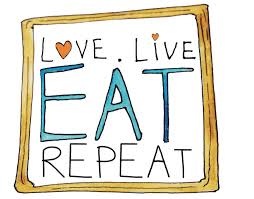 is what is on everyone’s mind right now as we are all directed to stay home during the COVID-19 virus as it takes center stage and eating for health may have been bypassed along the way. Eating for health and wellness is something relatively new on our planet. Finally, we are beginning to evolve and become more conscious of what living a healthy lifestyle means as more people are becoming aware that what we eat affects our health and wellbeing. Other criteria for health and wellbeing changes can be breaking toxic habits such as smoking or daily consumption of alcoholic beverages. In addition to your eating for health regime, other healthy options may include becoming aware of breathing deeper and getting more exercise, and detox and cleansing. Each new day we have a choice. One question you may want to ask yourself is, are you “Living to Eat” or “Eating to Live”?
is what is on everyone’s mind right now as we are all directed to stay home during the COVID-19 virus as it takes center stage and eating for health may have been bypassed along the way. Eating for health and wellness is something relatively new on our planet. Finally, we are beginning to evolve and become more conscious of what living a healthy lifestyle means as more people are becoming aware that what we eat affects our health and wellbeing. Other criteria for health and wellbeing changes can be breaking toxic habits such as smoking or daily consumption of alcoholic beverages. In addition to your eating for health regime, other healthy options may include becoming aware of breathing deeper and getting more exercise, and detox and cleansing. Each new day we have a choice. One question you may want to ask yourself is, are you “Living to Eat” or “Eating to Live”?
Our Immune System
Why is it that when two people live together, one may “catch the flu” while the other remains healthy? It is within our Immune Systems that this answer is revealed. We now know 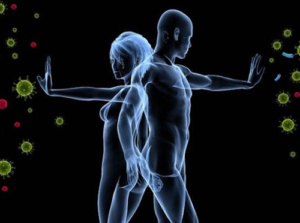 from science-based studies that certain whole foods create a healthy immune system. Our immune system is a cellular network in tissue and organs that work together by fighting off harmful parasites, viruses, and fungus in our bodies. It acts as a barrier between our body and the viruses and bacteria that can make us sick. When our immune system is compromised by our diets, lifestyles, and toxic environmental issues illness will occur. When we are around others who have become sick it is crucial that our immune systems are in check and good working order to fight invaders. Check out this article for specific foods that will promote a healthy immune system so you can add them to your ‘eating for health’ protocol.
from science-based studies that certain whole foods create a healthy immune system. Our immune system is a cellular network in tissue and organs that work together by fighting off harmful parasites, viruses, and fungus in our bodies. It acts as a barrier between our body and the viruses and bacteria that can make us sick. When our immune system is compromised by our diets, lifestyles, and toxic environmental issues illness will occur. When we are around others who have become sick it is crucial that our immune systems are in check and good working order to fight invaders. Check out this article for specific foods that will promote a healthy immune system so you can add them to your ‘eating for health’ protocol.
Eating Trends
Labeling yourself with diet has become trendy. There are many different reasons for the way people choose to eat. Some diets are religion-based while some change their food intake to vegan or vegetarian diets due to the cruelty of animal farming factories as well as pesticides and GMO foods. Many folks have not changed eating patterns at all from the way they were brought up in their families as recipes and certain foods have been handed down for generations. This is a type of cultural programming. This programming has happened to all of us as we never thought to question it. As children we ate what was put in front of us and learned how to cook those same foods.
yourself with diet has become trendy. There are many different reasons for the way people choose to eat. Some diets are religion-based while some change their food intake to vegan or vegetarian diets due to the cruelty of animal farming factories as well as pesticides and GMO foods. Many folks have not changed eating patterns at all from the way they were brought up in their families as recipes and certain foods have been handed down for generations. This is a type of cultural programming. This programming has happened to all of us as we never thought to question it. As children we ate what was put in front of us and learned how to cook those same foods.
Also, another issue of programming our neural pathways and intentionally patterning our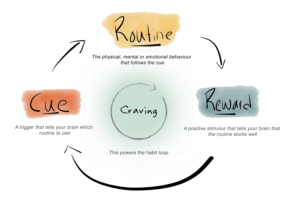 food desires is through TV commercials, billboards, fast food, pre-prepared and processed foods, and magazine advertising, which means that much of what has been promoted over and over on the market to us has been all business, and not necessarily about our health. As I write this my mind can come up with all sorts of eating slogans from my past. For me, especially about meat and fast foods. “Where’s the Beef?” and “Beef; It
food desires is through TV commercials, billboards, fast food, pre-prepared and processed foods, and magazine advertising, which means that much of what has been promoted over and over on the market to us has been all business, and not necessarily about our health. As I write this my mind can come up with all sorts of eating slogans from my past. For me, especially about meat and fast foods. “Where’s the Beef?” and “Beef; It 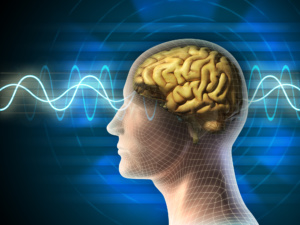 what’s for dinner” etc.; with hundreds or maybe thousands of slogans that have programmed our subconscious minds. Even now as I have not eaten fast food for a long time, as I drive past the fast food places my “rational mind” says, “HEY.. get a burger from Carls!” It is truly amazing to observe. Now, I do no longer feel the need to get that burger. Our rational minds only know what we have told it over and over, or information we have let in. Becoming consciously aware of this neural programming allows us to become more conscious to choose to change and select new ways of thinking that will allow us to not just survive but when we are eating for health we thrive.
what’s for dinner” etc.; with hundreds or maybe thousands of slogans that have programmed our subconscious minds. Even now as I have not eaten fast food for a long time, as I drive past the fast food places my “rational mind” says, “HEY.. get a burger from Carls!” It is truly amazing to observe. Now, I do no longer feel the need to get that burger. Our rational minds only know what we have told it over and over, or information we have let in. Becoming consciously aware of this neural programming allows us to become more conscious to choose to change and select new ways of thinking that will allow us to not just survive but when we are eating for health we thrive.
Diet Labels
Not all food diets are for everyone, nor are they created equal when eating for health. There 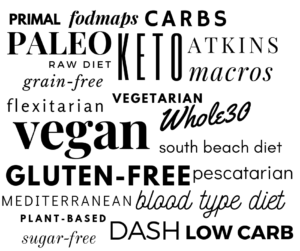 are oodles of labels now for what people are eating. There are also several types of vegetarians: Lacto vegetarian, fruitarian vegetarian, Lacto-Ovo vegetarian, living food vegetarian, Ovo-vegetarian, Pesco-vegetarian, and semi-vegetarian. Most of the vegetarians are Lacto-Ovo vegetarians, which means they do not eat animal-based foods except for eggs, some dairy, and honey. Here is a list of a few of the food labels people resonate with.
are oodles of labels now for what people are eating. There are also several types of vegetarians: Lacto vegetarian, fruitarian vegetarian, Lacto-Ovo vegetarian, living food vegetarian, Ovo-vegetarian, Pesco-vegetarian, and semi-vegetarian. Most of the vegetarians are Lacto-Ovo vegetarians, which means they do not eat animal-based foods except for eggs, some dairy, and honey. Here is a list of a few of the food labels people resonate with.
- Vegan (or total vegetarian): Excludes all animal products, especially meat, seafood, poultry, eggs, and dairy products. It does not require the consumption of whole foods or restrict fat or refined sugar. (While being Vegan can be good for your health if you are eating healthy foods. On another level, it is also not so healthy when you are stuffing your face with potato chips and other processed foods that lack nutrition.)
- Raw food, vegan: Same exclusions as veganism as well as the exclusion of all foods cooked at temperatures greater than 118°F.
- Lacto-vegetarian: Excludes eggs, meat, seafood, and poultry and includes milk products.
- Ovo-vegetarian: Excludes meat, seafood, poultry, and dairy products and includes eggs.
- Lacto-Ovo vegetarian: Excludes meat, seafood, and poultry and includes eggs and dairy products.
- Mediterranean: Similar to whole-foods, plant-based diet but allows small amounts of chicken, dairy products, eggs, and red meat once or twice per month. Fish and olive oil are encouraged. Fat is not restricted.
- Whole-foods, plant-based, low-fat: Encourages plant foods in their whole form, especially vegetables, fruits, legumes, and seeds and nuts (in smaller amounts). For maximal health benefits this diet limits animal products. Total (bad) fat is generally restricted.
Studies over the last few years have shown that vegetarians have a lower body weight, suffer less from diseases, and typically have a longer life expectancy than people who eat meat. One can easily google the American Journal of Medicine (which is what I did) to discover the results from these studies.
Apply Effort in your Eating for Health Plan
In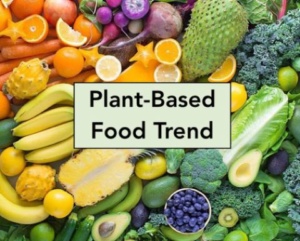 the beginning, a healthy, plant-based diet requires planning, reading labels, and some discipline.
the beginning, a healthy, plant-based diet requires planning, reading labels, and some discipline.
“The recommendations for patients who want to follow a plant-based diet may include eating a variety of fruits and vegetables that may include beans, legumes, seeds, nuts, and whole grains and avoiding or limiting animal products, added fats, oils, and refined, processed carbohydrates. The major benefits for patients who decide to start a plant-based diet are the possibility of reducing the number of medications they take to treat a variety of chronic conditions, lower body weight, decreased risk of cancer, and a reduction in their risk of death from ischemic heart disease.” (American Journal of Medicine)
A plant-based diet is not an all-or-nothing program. Everyone is different and eating should  be addressed individually for those with physical issues. Change does not happen overnight. The most important thing is to get started. Your body will begin craving what is good for you after a while as changes occur. I always say,” It’s challenging in the beginning of any change, super messy in the middle, yet so worth it in the end.”
be addressed individually for those with physical issues. Change does not happen overnight. The most important thing is to get started. Your body will begin craving what is good for you after a while as changes occur. I always say,” It’s challenging in the beginning of any change, super messy in the middle, yet so worth it in the end.”
“Eating a vegetarian diet may be especially beneficial for those with obesity, Type 2 diabetes, high blood pressure, lipid disorders, or cardiovascular disease. The benefits realized will be relative to the level of adherence and the amount of animal products consumed. Strict forms of plant-based diets with little or no animal products may be needed for individuals with inoperable or severe coronary artery disease. Low-sodium, plant-based diets may be prescribed for individuals with high blood pressure or a family history of coronary artery disease or stroke. A patient with obesity and diabetes will benefit from a plant-based diet that includes a moderate amount of fruits and vegetables and minimal low-fat animal products. Severe obesity may require counseling and initial management with a low-calorie diet or a very-low-calorie diet and the supervision of a physician’s team. Patients with kidney disease may need a plant-based diet with special restrictions, for example fruits and vegetables that are high in potassium and phosphorus. Finally, patients with thyroid disease will need to be careful when consuming plants that are mild goitrogens, like soy, raw cruciferous vegetables, sweet potatoes, and corn. These patients should be informed that cooking these vegetables inactivates the goitrogens.”
(Nutritional Update for Physicians: Plant-Based Diets/Permanente Journal) For these reasons and many others it is important to contact a doctor that has a background in plant-based nutrition and exercise.
Your Physician and Big Pharma
Most of the time physicians ignore the potential benefits of good nutrition and quickly prescribe medications instead of giving patients a chance to correct their disease
thro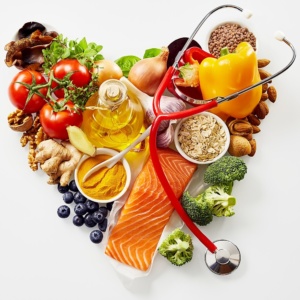 ugh healthy eating and active living. This may be due to the lack of their scope of practice in nutrition. Also, the pharmaceutical companies do love to push their drugs. The side effects of many drugs creates the need to take other drugs to combat the side effects. It can become a never-ending cycle.
ugh healthy eating and active living. This may be due to the lack of their scope of practice in nutrition. Also, the pharmaceutical companies do love to push their drugs. The side effects of many drugs creates the need to take other drugs to combat the side effects. It can become a never-ending cycle.
If we as a people are to slow down the obesity epidemic and reduce the complications of chronic disease, raise our immune systems so our bodies can fight viruses like the flu and COVID-19, we must consider changing our culture’s mindset from “live to eat” to “eat to live” and begin Eating for Health and Wellness. Find a doctor that is certified in nutrition and work together to discover the best foods for your health regime. Many times, changing your diet can aid in clearing diabetes, heart disease, high blood pressure, and other bodily malfunctions. ALWAYS ask a plant-based nutrition educated doctor about diet and or medication changes and NEVER suddenly stop taking any medications. Many medications need to be weaned off.
Opportunity for Change
During this global isolation most of us are not working and in our homes. This gives us the time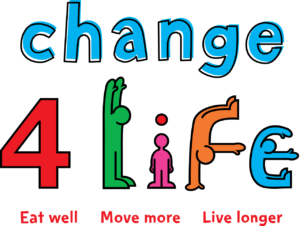 and opportunity to become more conscious of our patterns, to perhaps change our thinking; change what we want to eat to create our optimum health, and change our perspectives on health and wellness not only for ourselves, but for our children and families, and our children’s families to come. Pass down new information on how to Eat for Health that will continue for generations to come. Perhaps this is also an opportunity to have this time to reflect on changing other aspects of our lives and how we are currently living that will create more joy in our lives.
and opportunity to become more conscious of our patterns, to perhaps change our thinking; change what we want to eat to create our optimum health, and change our perspectives on health and wellness not only for ourselves, but for our children and families, and our children’s families to come. Pass down new information on how to Eat for Health that will continue for generations to come. Perhaps this is also an opportunity to have this time to reflect on changing other aspects of our lives and how we are currently living that will create more joy in our lives.
The future of our health care will involve an evolution toward a paradigm where the focus on prevention and treatment of disease is centered, by becoming responsible for our o wn health and not on a pill or surgical procedure. One easy way is to have another serving of fruits and vegetables.
wn health and not on a pill or surgical procedure. One easy way is to have another serving of fruits and vegetables.
Everyone from Returning Balance Therapies in Glenwood Springs Colorado sends out a healthy hello. We look forward to getting back to working with you soon, whether it be flushing out toxins with Colon Hydrotherapy, an amazing massage, or BARS work to release fears and old patterns. We are here to assist in guidance and facilitate your health and well-being on every level.
Thank you and remember you can change to Eating for Health.
